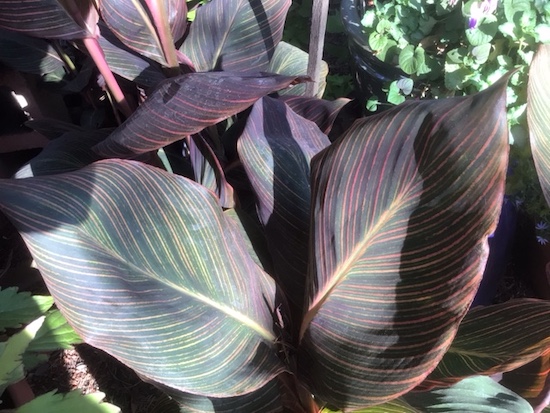August News 2021
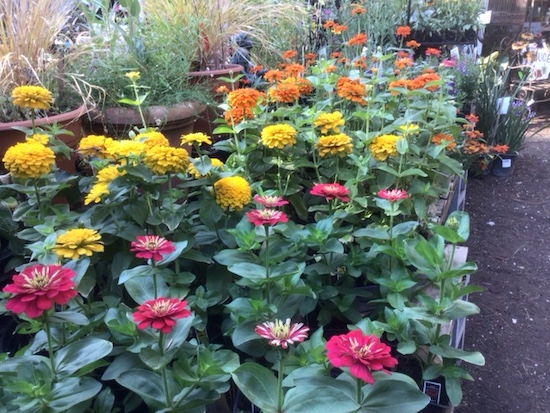
July has been a hot one, no doubt about that. Plenty of reports of plants getting toasted and vegetables doing poorly. We wish we had a magic cure for you but other than mulching heavily and creating more shade in your yard; we are out of ideas. If possible, keep your plants fed with a quality fertilizer and make sure you are watering deeply, especially if you are hand watering. The goal is to lessen any other types of stress on the plants beside the heat. Some non-organic slow-release fertilizers designed to break down with heat and water can break down too fast in the summer, causing fertilizer burn. Do not overdo it.
Many of you have been coming in for Bt spray for caterpillar issues. Caterpillars eventually grow into those pollinators we are so concerned about. Tomato hornworms change into beautiful hummingbird moths. Budworms on our petunias and geraniums turn into those white butterflies. What a quandary in some aspects. Maybe those hornworms can be moved to another plant in the nightshade family that you do not mind getting eaten. The white butterflies seem like they are plentiful enough, but for how long? Mostly we are mentioning this to remind you that there might be a swallowtail or a blue spot butterfly larvae out there eating your flowers. Pollinator gardens, as a rule, should be planted with flowers that will support all stages of growth. That means we are duty-bound to let butterfly larvae feast on their preferred food sources. We have two or three swallowtails flitting around the nursery. In the past, they have laid their eggs on the fennel. The larvae are black with yellow stripes, and we are going to let them eat whatever they want. Be aware and try to be sure you are only killing your target.
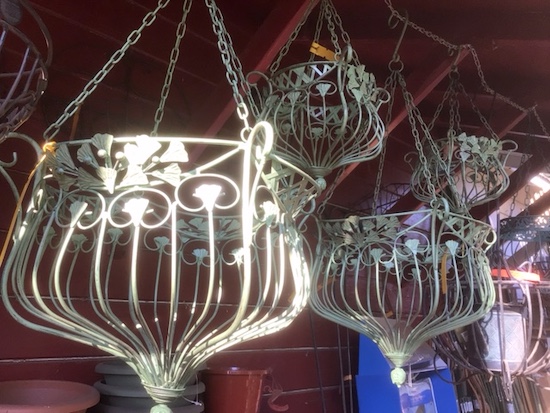
We just packed up most of the summer seed to return for credit and put in our first seed order for fall. August is the month to start a lot of your winter vegetables if you plan on growing by seed. It is recommended that you start them in containers first at it is still too bloody hot to actually sow them directly into the ground. Broccoli, cabbage, Brussels sprouts, cauliflower, collards, and kale are examples of what we are talking about. A few of the seed packs we wanted are still out of stock, but we still have a good selection in stock now of vegetable seeds. Fall flower seeds like sweet peas and poppies are coming.
Keep up with deadheading (removing spent blooms) on your flowers to keep them blooming. It is a good idea to feed everything at some time this month. Plants should be responding more favorably now that the sun is not as intense and the evapo-transpiration rate (moisture loss through the leaves and soil) is slowing. Hopefully, we will get some tomatoes yet.
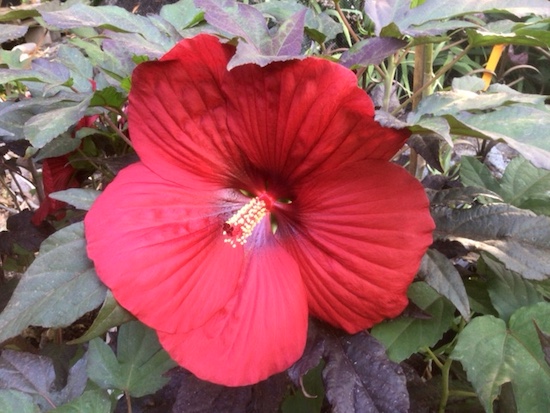
July is always a slow month for us. School is out, people are on vacation, staying in because of the heat, etc. Pottery has still been hard to get. We are still waiting on our cement statuary order and one of our metal orders. We did get in a show order from Rustic Arrow that included the metal birdhouses, moons, and other decors. Also, a flat of Mimicry plants arrived today. Still, the nursery is loaded with great plant material. Some of the highlights now are Echinaceas and Rudbeckias, Hibiscus moscheutos (can be grown in water with sun), Crepe Myrtles, Rose of Sharons, Zinnias, and Angelonias. We should have some Horsetails by the time you get this. These make great pond plants, and we have not had them available for sale for a few months.
Those pesky bordered plant bugs. You know the ones. Beetles with an orange border stripe. They are wintering over in greater numbers. (One of the drawbacks to milder winters is more bugs and their eggs survive into spring.) I see we are on our second hatch of tiny shiny black nymphs. These change into bigger black nymphs with an orange spot on the back before they become the adult. So far, I have not seen them do considerable damage to anything important, but they can. The first hatch feasted on the prickly pear fruit. We have been using neem, trying to break their life cycle. With hot, dry, dusty weather, spider mites thrive. If your leaves look like someone has sucked the life out of them, check the backside by rubbing your fingers over it and see if you come away with fine webbing. Spider mites are invisible to the naked eye. We usually have to deal with leafhoppers here too. They love grapes, especially the one that grows on the fence by our back gate. As long as they stay there and do not get to our grapes to sell, we might spray once with neem or Take Down. They are almost impossible to kill with a contact spray like soap or horticultural oil as they just hop off when you spray. So far, whiteflies are not an issue here, but these can attack tomatoes and other things. If you see lots of tiny white flies coming off any plant when you jostle it or are watering, you probably have whiteflies. They are also attracted to yellow flowers and light-colored foliage. Spray every 3 days for a month with a pyrethrum spray. Sticky whitefly traps work well and are a good way to monitor for other pests in the garden.
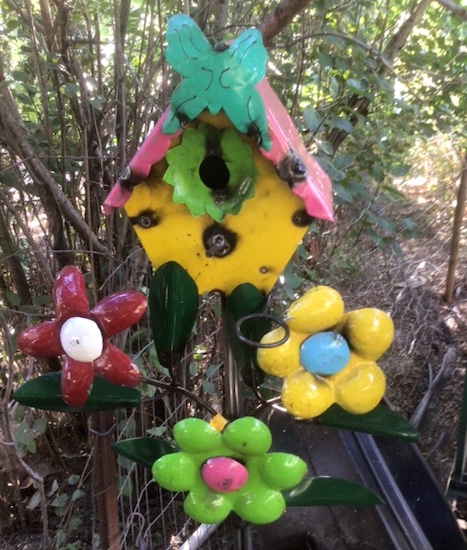
We are heading into late summer and early fall. Every year we remind people that this is the best time to plant trees and shrubs in our climate. This is especially true in drought years. Plants will have a better root system if planted in fall as we head into our next hot, dry summer. Think about planting another shade tree, maybe even closer to your vegetable beds on the west side, to give them a break from our intense sun that is only getting stronger as the years go by.
Considering taking out more lawn to conserve on water? Some good low growing ground covering shrubs include low growing manzanitas, cotoneasters, and rockrose. Perennials like fern leaf yarrows, Mexican primrose, plumbago, hypericum, teucrium, and myoporum work well too. This is by no means everything you could consider but just a few suggestions if you are wondering about lawn substitutes. Another option is to plant a few larger shrubs and gravel or bark the rest. Sometimes less is more.
July Specials
20% OFF
- All sizes EBStone All-Purpose Plant Food
- Peonies
- 4-inch Specialty Petunias
- Grapes
